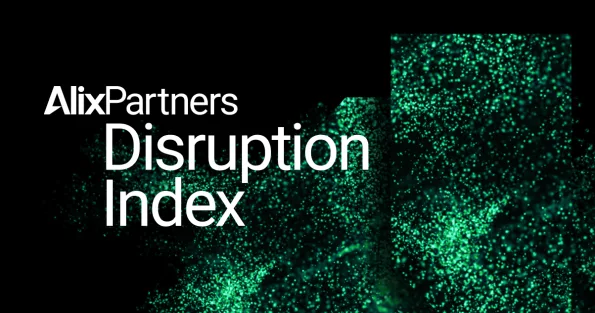
20 May 2025

Disruption is almost always unexpected. But disruptive forces are often foreseeable.
In our findings from the AlixPartners Disruption Index, based on a survey of 3,200 senior executives around the world, we look at the challenges those executives identify, as well as the behaviors of those companies that are thriving in this disrupted world.

Global trade is more volatile than ever. How can businesses stay competitive in their markets?
In a disruption-heavy global trade environment, businesses must be prepared for uncertainty. From fluctuating tariffs to regulatory shifts to geopolitical disruptions, building a resilient and adaptable supply chain is more critical than ever.